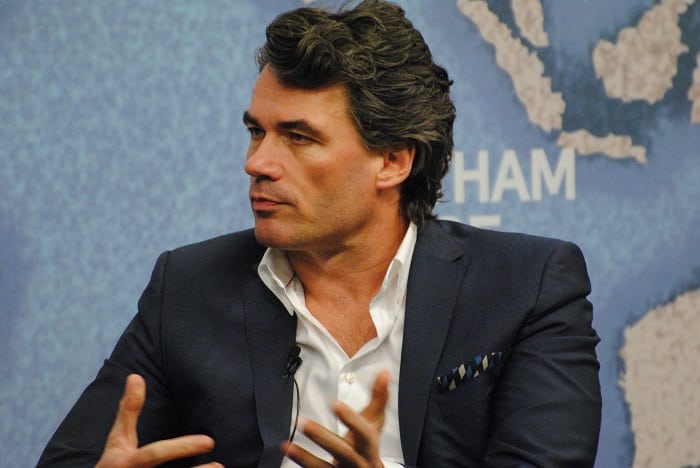Patterson (pictured) will step down later this year. The board has begun looking for his successor.
The telecoms giant said it realised it needed a change of leadership to deliver its transformation plans.
Jan du Plessis, chairman of BT, said: “Gavin has been with BT for just over 14 years and I want to thank him for his contribution to our business during that time, in particular during the almost five years that he has served as chief executive.”
“The board is fully supportive of the strategy recently set out by Gavin and his team. The broader reaction to our recent results announcement has though demonstrated to Gavin and me that there is a need for a change of leadership to deliver this strategy.”
Patterson will continue to lead the business during the transition phase.
Picture of improvement
Laith Khalaf, senior analyst at Hargreaves Lansdown, said the board’s decision to replace Patterson was a symbolic gesture to get shareholders back on board, following disappointing share price performance and the abandonment of a plan to consistently increase dividends.
“The board have decided they want to draw a line in the sand here and present a picture of improvement going forward,” said Khalaf.
“The company has been under a lot of pressure recently. The share price performance has been pretty dire and when you have that kind of continued pressure on a business that exerts a knock-on impact on the leadership as well.”
The poor share price performance is one of the main reasons Patterson had to go, said AJ Bell investment director Russ Mould.
“In the end the Patterson plan failed to deliver where it matters most to investors – the share price,” Mould said.
“BT shares trade at a six-year low and even stand below where they stood when Sir Peter Bonfield took over as CEO in early 1996.”
Since Patterson took over the reins in 2013, BT’s share price has fallen by 41%. Dividends have limited the total return loss to shareholders to 24%.
“That is easily the worst showing among the four bosses who have led the telecoms firm since the turn of the millennium,” Mould noted.
Last month the group revealed it would be slashing thousands of back office jobs as part of its £1.5bn cost cutting initiative and would be relocating its headquarters away from central London.
The plans were met with a lukewarm reception from shareholders, pushing the telecom giant’s share price down by 7% on the day. Year-to-date shares in the firm are down 26%.
BT’s shares opened over 2% higher on Friday morning after news of Patterson’s exit broke.
“I think if you’re an outgoing CEO, that is probably a difficult one to stomach but reflects the fact that a fresh leader is probably viewed positively by the market,” said Khalaf.
Successor
During his tenure, Patterson saw the firm through several difficult spots, most recently an Italian accounting scandal and skirmishes with telecoms regulator Ofcom.
However, Khalaf said there have been some successes along the way, including the integration of EE.
The fact that Openreach is still owned by BT and has avoided being spun-out is also a boon for the firm.
But both Mould and Khalaf note that the company faces fierce competition from the likes of Sky, Virgin Media and Vodafone and even from Amazon, which has just acquired Premier League broadcast rights from 2019.
“The new chief executive will therefore have a lot on his or her plate and they will also be in the unusual position of being asked to implement a strategy which the BT board – including presumably Mr Patterson – has already signed off, with the help of consultants McKinsey,” said Mould.
“At least one thing that the new CEO will have on their side is the shares’ rotten performance under Mr Patterson.”










